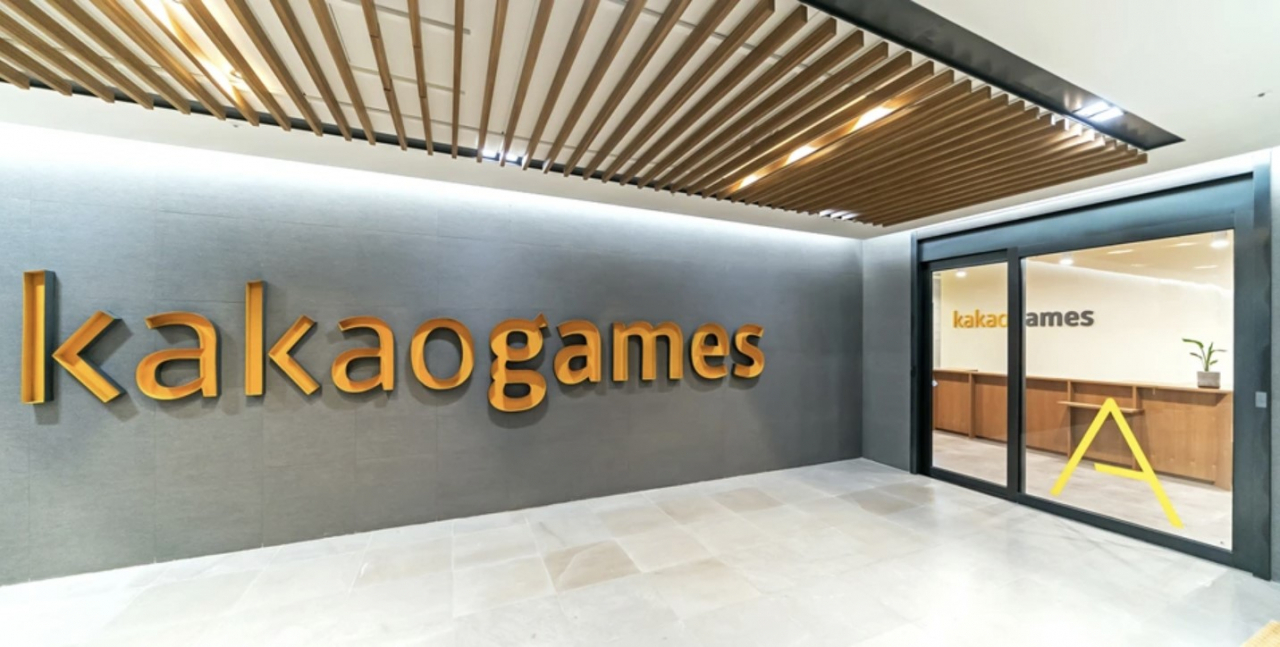
Kakao Games has decided to scrap using English names among its employees, becoming the first Kakao affiliate to backtrack on the IT front-runner’s attempt to make a more bottom-up working environment with open communication.
Kakao Games CEO Han Sang-woo, whose English name is Michael, announced the decision in a meeting with employees on April 17, noting that there had been confusion as its workers had to use English names inside the company but went by their Korean names for external communication.
Instead of using English names, Han said the employees will now add “nim” at the end of each other’s Korean name when addressing one another. Nim is an honorific suffix used in the Korean language to show respect. Compared to adding nim at the end of hierarchically ranked job titles, adding it to the end of employee names shows respect to individuals in an egalitarian manner.
Kakao Games said the exact timing for the implementation of the new name system has not been determined yet, adding that the employees have already been using both English names and the nim suffix for Korean names.
Kakao was one of the first companies to adopt English names in the workplace since its establishment in 2010. Kim Beom-su, the founder of the IT giant, has long been referred to by his English name, Brian.
Kakao has been recently embroiled in its worst crisis due to a series of controversies and legal risks such as the alleged manipulation of SM Entertainment’s stock price during its takeover attempt of the K-pop agency and its executives facing criticism over profiting off of selling shares in their companies.
'Fundamental changes'
With Kakao’s brand image at an arguably all-time low, the founder underscored his will to make "fundamental changes," even to the name of the company, to turn things around.
“It’s been 14 years since our crew debuted KakaoTalk with the aspiration to make the world better,” said Kim in an internal announcement in December last year.
“I feel terrible about the current situation in which we are being criticized for 'greedily trying to make money by even going after mom-and-pop shops' just a few years after being asked, 'How will you make money with free services?’”
Saying that it is time for Kakao to "abandon the inertia of the last 10 years and design anew from the beginning," Kim said everything, including Kakao’s use of English names, information sharing and horizontal culture, which the company has taken for granted, should be reviewed from the ground up.
However, Kakao explained that Kim’s mention of the English name system just shows how far he is willing to go in terms of transforming the company’s culture altogether.
Regarding speculations that other Kakao affiliates might follow in Kakao Games’ direction, Kakao clarified that it was the gaming company’s independent decision. For the time being, there will be no more Michael, the CEO’s English name, at Kakao Games.
English names 'out of place'
Although a number of Korean companies have adopted using English names among their workers for a horizontal culture to bring out the best of all personnel, the sudden clash with Korea’s longtime emphasis on hierarchical rank may not have resulted in the most desirable scenario, some experts and stakeholders say.
According to a survey about the need for companies to reduce company hierarchies by job search website Saramin of 1,153 workers here in 2021, only 6.3 percent of respondents preferred using English names in the workplace, whereas 37.1 percent preferred using the Korean honorific suffix of nim after their Korean names, regardless of their position title. The largest share of respondents -- 40.1 percent -- preferred that company hierarchies by reduced to a maximum of three levels only.
“Using English names was to follow the style of US companies and bolster communication among employees,” said Kim Dae-jong, a business professor at Sejong University.
“But getting completely rid of Korean names and position titles seemed to have made Korean workers feel out of place. I think (Kakao Games’ decision to remove English names) will spread to other firms because it’s inefficient. In order to increase efficiency, you need to know clearly who is who," Kim continued, pointing to a lack of clarity that he felt arises when Korean employees suddenly start using English first names only.
An official working at a company that allows employees to use an English name if they wish argued that adopting the English name system feels to them like “sadaejuui,” a Korean term to indicate an obsession with the powerful and an attempt to imitate them blindly.
“To me, using English names at a Korean company looks like a mere (superficial) attempt to follow 'Western culture.' It does not make sense for companies such as Kakao that do not have many foreign employees to make workers call each other by English names," said the official.


![[Weekender] Pet food makers bet big on ‘recession-free’ pet food market](http://res.heraldm.com/phpwas/restmb_idxmake.php?idx=645&simg=/content/image/2024/05/10/20240510050754_0.jpg&u=20240512145510)

![[Drama Tour] Romantic trip to ‘Queen of Tears’ filming spots](http://res.heraldm.com/phpwas/restmb_idxmake.php?idx=645&simg=/content/image/2024/05/09/20240509050798_0.jpg&u=20240511190213)
